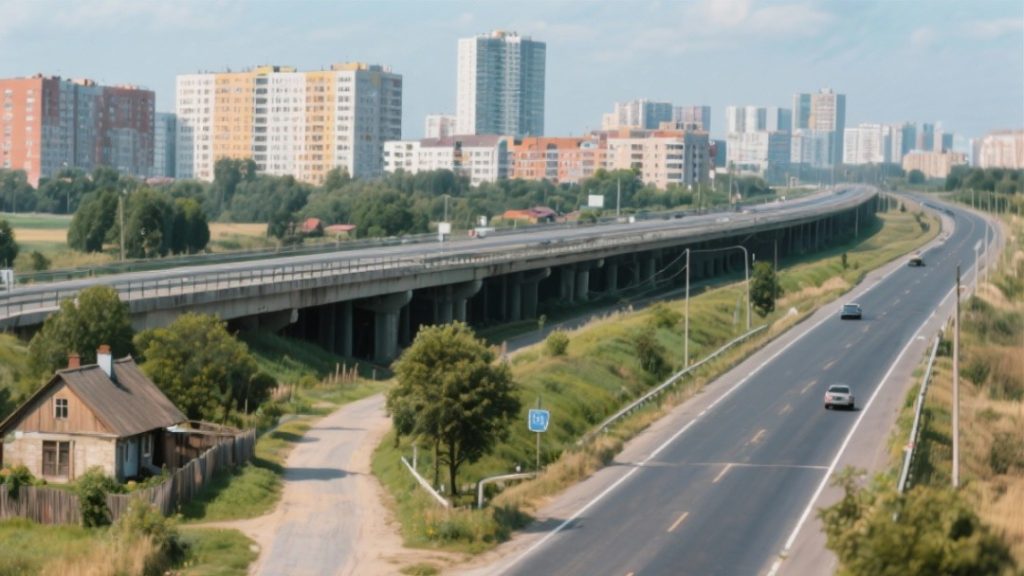
Roads are a crucial part of our daily lives. From commuting to work to running errands or visiting loved ones, we depend on roads every day. However, have you ever wondered who is actually responsible for making sure these roads are safe, well-maintained, and free of potholes? Understanding who legally takes care of roads can help you know where to turn when there’s a problem and how to hold the right authorities accountable. In this blog, we’ll explain in simple terms which government bodies are responsible for roads, the important laws behind their duties, and what you as a citizen should know to protect your rights.
1. The Different Types of Roads and Who Maintains Them
First, it’s important to realize that not all roads are managed by the same authority. Generally, roads fall into three categories:
- Local roads (streets within cities, towns, and villages)
- State roads (highways and main roads connecting places within a state)
- National highways (roads connecting different states and major cities across India)
Because of this division, different government bodies are legally responsible for maintaining these roads. Let’s look at each one.
2. Local Bodies: The Guardians of Your Neighborhood Roads
When you think of the streets where you live or shop, these fall under the care of local authorities. These include Municipal Corporations, Municipal Councils, and Panchayats (village councils).
Legal Framework:
- The Constitution (74th Amendment) Act, 1992 empowers urban local bodies to maintain roads and public infrastructure in cities and towns.
- Similarly, the 73rd Amendment provides similar powers to Panchayats in rural areas.
Responsibilities:
Local bodies are legally required to:
- Maintain and repair local roads, lanes, footpaths, and streetlights.
- Ensure the roads are safe and accessible for residents and visitors.
What This Means for You:
If you notice potholes or road damage in your neighborhood, the first step is to contact your local municipal office or Panchayat. Under the law, they are obliged to address these issues promptly.
3. State Public Works Departments: Taking Care of Larger Roads
For bigger roads like state highways and major roads connecting towns within a state, the responsibility shifts to the State Public Works Department (PWD) or sometimes specialized State Road Development Authorities.
Legal Framework:
- Each state has its own PWD Act or related legislation defining the duties of these departments.
- The state government is responsible for maintaining these roads, often by awarding contracts to private firms under government supervision.
Responsibilities:
The state agencies must:
- Regularly inspect and repair state highways and other major roads.
- Manage construction projects and ensure the quality of road work.
What This Means for You:
If you spot potholes or hazards on state highways, report these to the State PWD office or through online portals provided by the state government.
4. National Highways Authority of India: Custodians of National Connectivity
The National Highways Authority of India (NHAI) and the Ministry of Road Transport and Highways (MoRTH) are responsible for India’s national highways — the major roads that connect states and key cities.
Legal Framework:
- The National Highways Act, 1956 governs the development and maintenance of national highways.
- The NHAI Act, 1988 established NHAI as the agency responsible for construction, maintenance, and operation of these roads.
Responsibilities:
NHAI and MoRTH must:
- Ensure national highways are safe, smooth, and free from hazards.
- Oversee contracts with private companies for road construction and upkeep.
What This Means for You:
For issues on national highways, complaints can be lodged directly with NHAI regional offices or through MoRTH helplines.
5. Why Knowing the Responsible Authority Matters to You
Understanding who looks after different roads is not just useful information — it can be very empowering. Here’s why:
- You can report problems faster to the right office, avoiding unnecessary delays.
- It helps when filing complaints or legal claims about accidents or damages caused by poor road conditions.
- Holding the right authority accountable increases the chances of timely repairs and safer roads for everyone.
6. How Laws Hold These Authorities Accountable
Multiple laws ensure these authorities cannot neglect their duties:
- The Indian Penal Code (IPC) Section 133 empowers magistrates to order removal of public nuisances such as dangerous road conditions.
- Courts have interpreted Article 21 of the Constitution (Right to Life) to include the right to safe roads, making authorities liable if negligence endangers citizens.
- Citizens can file Public Interest Litigations (PILs) in courts to demand government action on poor road conditions.
- The Consumer Protection Act, 2019 may also apply when road maintenance is considered a public service.
7. What Can You Do When You Spot Road Problems?
- Take clear photos and note the exact location of the problem.
- Report it to the correct authority based on the road type (local body, state PWD, or NHAI).
- Use official complaint portals or helplines to file reports.
- Follow up persistently if repairs are delayed.
- If necessary, seek legal advice or approach courts through PILs.
Roads connect us all, and keeping them safe is a shared responsibility — but mainly it’s a legal duty of specific government bodies. By knowing who is responsible for which roads and the laws backing their duties, you can play an active role in improving road safety and maintenance in your area. Remember, an informed citizen is a powerful citizen.
















